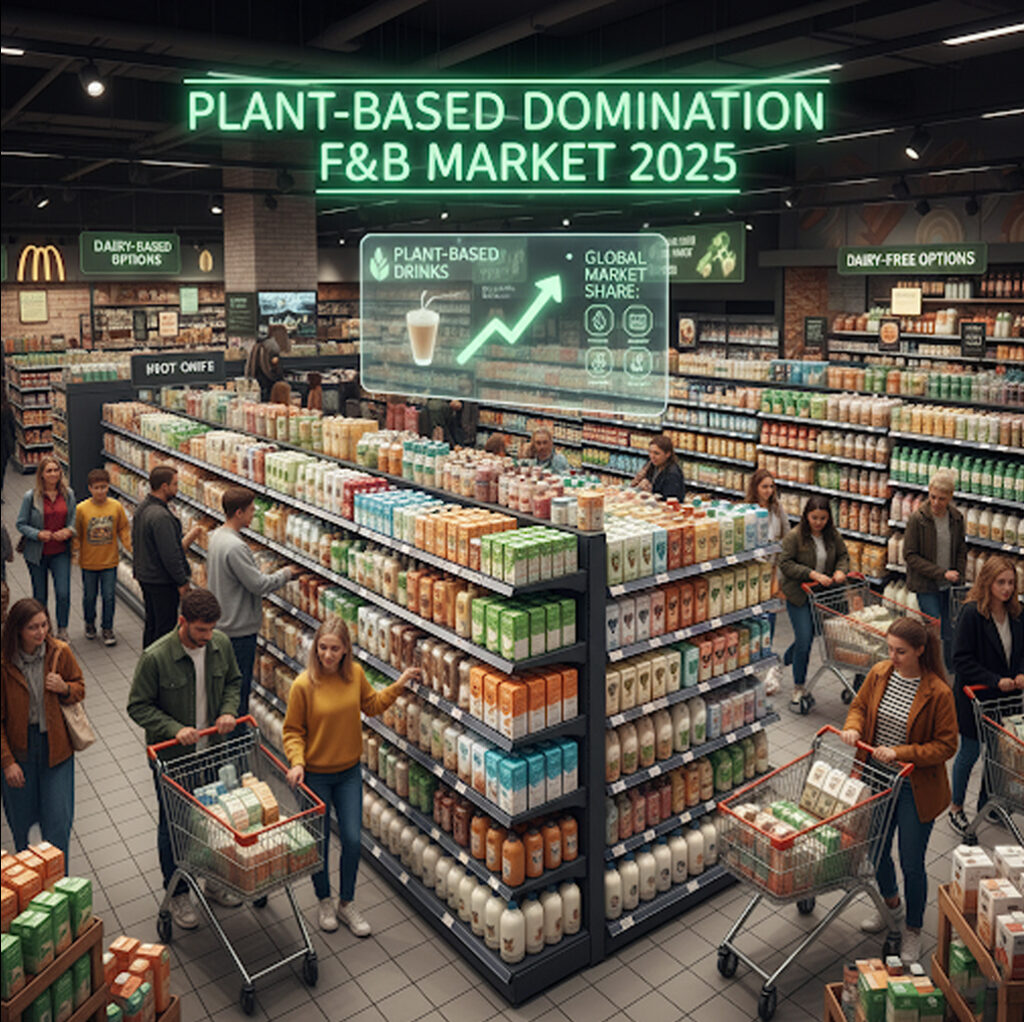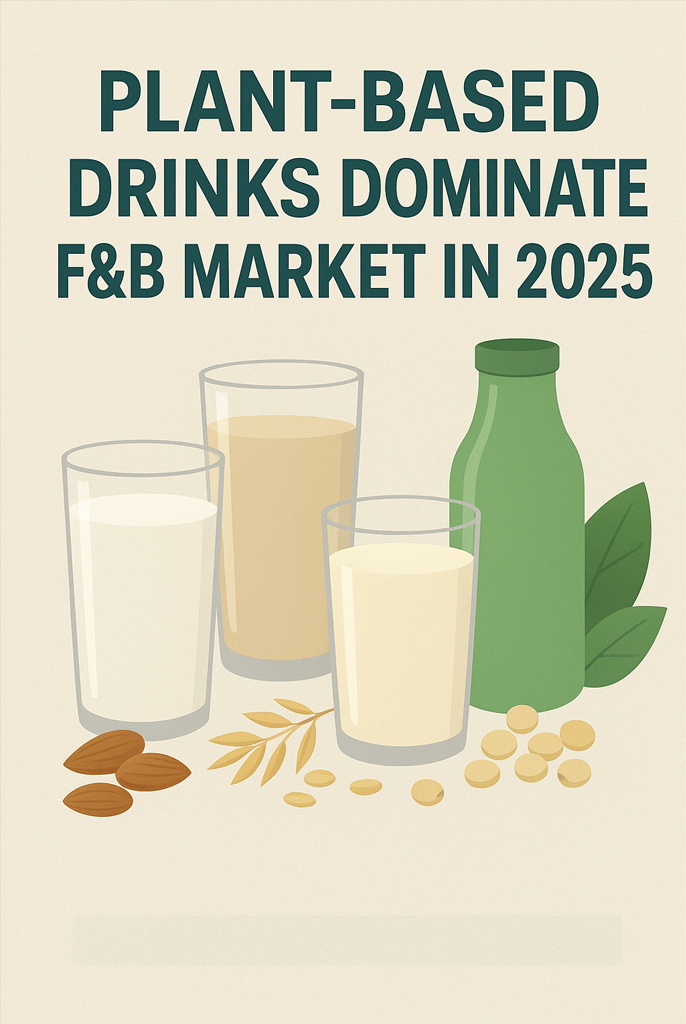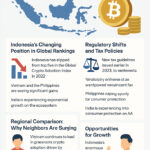Premium Biz Post – In 2025, the plant-based drinks market has emerged as a dominant force in the global food and beverage (F&B) industry. What started as a niche trend among health-conscious consumers has transformed into a mainstream movement reshaping product development, marketing, and sustainability strategies. Analysts attribute this surge to rising health awareness, environmental concerns, and the increasing availability of innovative plant-based alternatives.

Health and Wellness Driving Demand
The global shift toward healthier lifestyles has been a key driver behind the growing popularity of plant-based beverages. From almond milk and oat milk to protein-rich plant shakes, consumers are seeking products that taste good while aligning with wellness goals. Compared to traditional dairy products, plant-based drinks often offer lower calories, less saturated fat, and higher fiber content, appealing to nutrition-focused buyers.
Functional Benefits and Nutritional Innovation
Plant-based protein shakes now incorporate ingredients such as pea protein, hemp, and flaxseed, offering functional benefits beyond hydration. This innovation meets the needs of athletes, fitness enthusiasts, and everyday consumers who seek both taste and nutrition.
Sustainability as a Core Factor
Sustainability has become a crucial factor in consumer decision-making. Studies show that plant-based beverages generally have a lower carbon footprint compared to conventional dairy. Water consumption, greenhouse gas emissions, and land use are significantly reduced, making them a favorable choice for environmentally conscious buyers.
Brands are leveraging these environmental benefits in marketing campaigns, further increasing demand and market visibility. Transparency in sourcing and eco-friendly packaging are now important selling points for consumers.
Market Expansion and Retail Adaptation
Retailers and foodservice operators are quickly adapting to the growing demand. Supermarkets dedicate entire sections to plant-based drinks, while cafés offer oat, soy, and almond milk as standard menu options. Fast-food chains have also expanded offerings to meet the needs of dairy-free consumers.
E-Commerce and Digital Channels
The rise of e-commerce and direct-to-consumer platforms contributes to market growth. Online sales provide convenience, subscription services, and customization options. Social media marketing, influencer campaigns, and wellness advocacy play a vital role in driving awareness and purchase behavior.
Regional Growth: Asia-Pacific Leading the Way
Asia-Pacific has emerged as one of the fastest-growing regions for plant-based beverages. Countries such as China, Japan, and South Korea have seen surging demand for almond, oat, and soy-based drinks. Urban populations, particularly millennials and Gen Z, embrace plant-based lifestyles as part of broader wellness and sustainability trends. By the end of 2025, Asia-Pacific could account for nearly 40% of the global plant-based beverage market.
Innovation and Product Development
Companies are investing in research to improve taste, texture, and nutritional profiles. Oat milk, for example, has gained popularity due to its creamy texture, making it a preferred substitute for coffee and lattes.
Seasonal flavors, probiotic-enhanced beverages, and vitamin-fortified plant drinks cater to niche audiences while expanding mainstream appeal. These innovations help brands attract a diverse consumer base.
Marketing Strategies for Modern Consumers
Brands focus on transparency, non-GMO ingredients, and allergen-friendly formulations. Educational campaigns highlight the benefits of switching to plant-based beverages, reinforcing credibility and encouraging purchase decisions.
Venture capital and major food conglomerates are heavily investing in plant-based startups. Collaborations between traditional dairy producers and plant-based innovators reflect a market shift rather than outright competition, allowing companies to diversify and remain relevant.
Read More : ”Definition of DIY The Art of Making and Repurposing”
Challenges in a Growing Market
Despite rapid growth, companies face challenges in supply chain management, raw material sourcing, and production scalability. Quality control is crucial, as consumers expect consistent taste and nutrition. Successful navigation of these challenges can determine market leadership.
Consumer Behavior and Daily Integration
Plant-based drinks are no longer niche products. Families, professionals, and students incorporate them into daily routines, such as plant-based milk with breakfast cereals, protein shakes post-workout, or smoothies as snacks. This integration signifies a deeper adoption of plant-based lifestyles.
Competitive Landscape and Differentiation
Established beverage companies and startups invest in branding, packaging innovation, and limited-edition flavors. Premium products targeting coffee lovers, functional beverages, and creative seasonal options attract new customers and maintain growth momentum.
Governments in several countries have introduced guidelines to ensure product labeling transparency and nutritional accuracy. These regulations build consumer confidence, create a level playing field, and support long-term market growth.
Cultural Shift Towards Plant-Based Lifestyles
Global campaigns, documentaries, and sustainability initiatives have highlighted the environmental and ethical benefits of plant-based alternatives. As a result, plant-based drinks are increasingly viewed as preferred choices for socially responsible consumers.
Future Outlook: Growth Through 2030
Industry experts predict double-digit growth through 2030. Emerging technologies like precision fermentation and novel protein sources are expected to enhance versatility, sustainability, and nutrition. Integration of technology in production and marketing will enable companies to reach broader audiences with tailored products.
Plant-based drinks dominate the F&B market in 2025, reshaping consumer preferences and industry strategies. The combination of health benefits, sustainability, and innovation has propelled plant-based beverages into mainstream acceptance. Companies prioritizing quality, transparency, and creativity are poised to thrive in this evolving market.
With continued investment, technological advancements, and cultural acceptance, plant-based beverages are not just a trend—they represent a long-term market revolution shaping the global F&B landscape.



